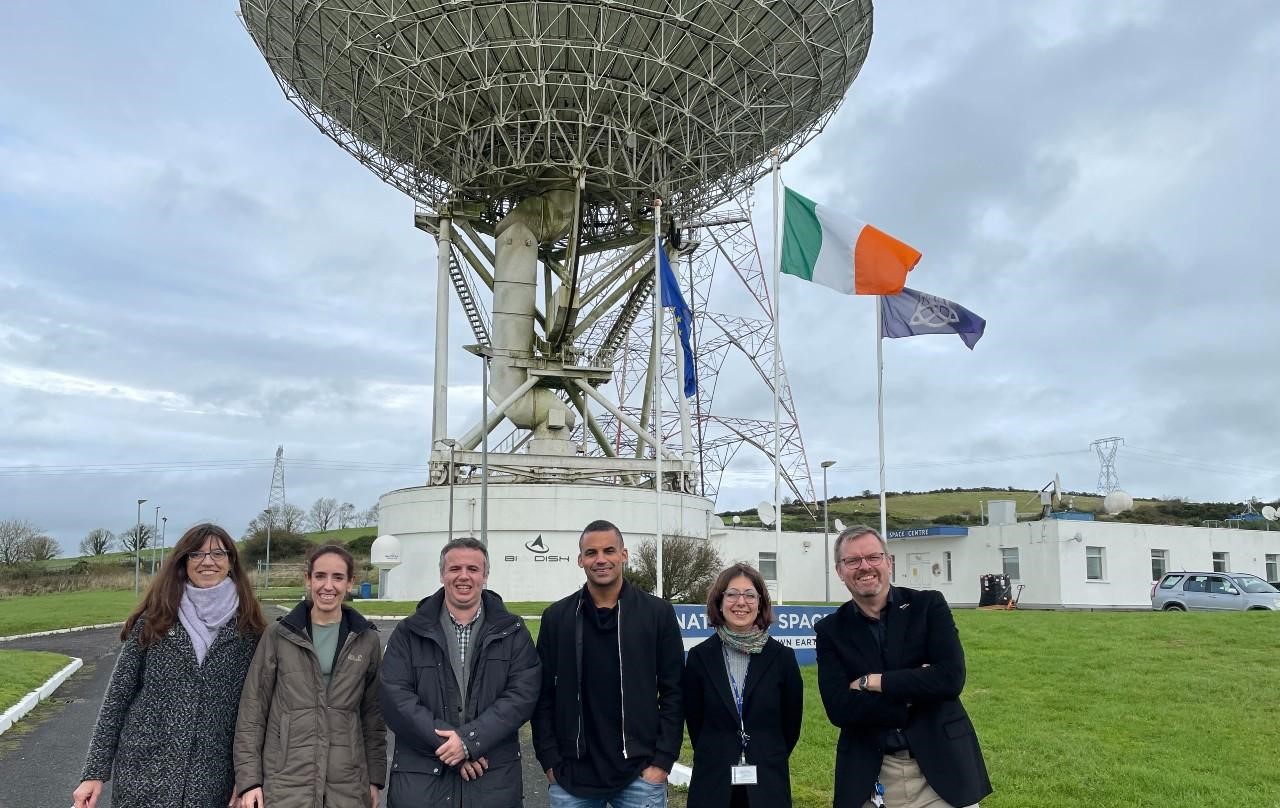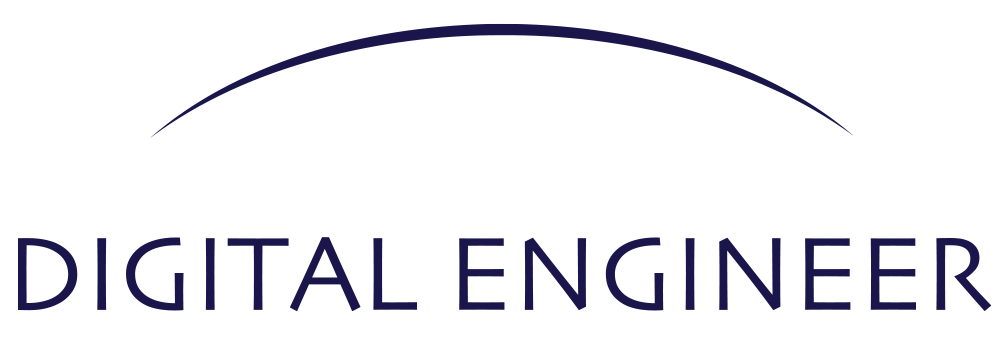
Objectives of the service
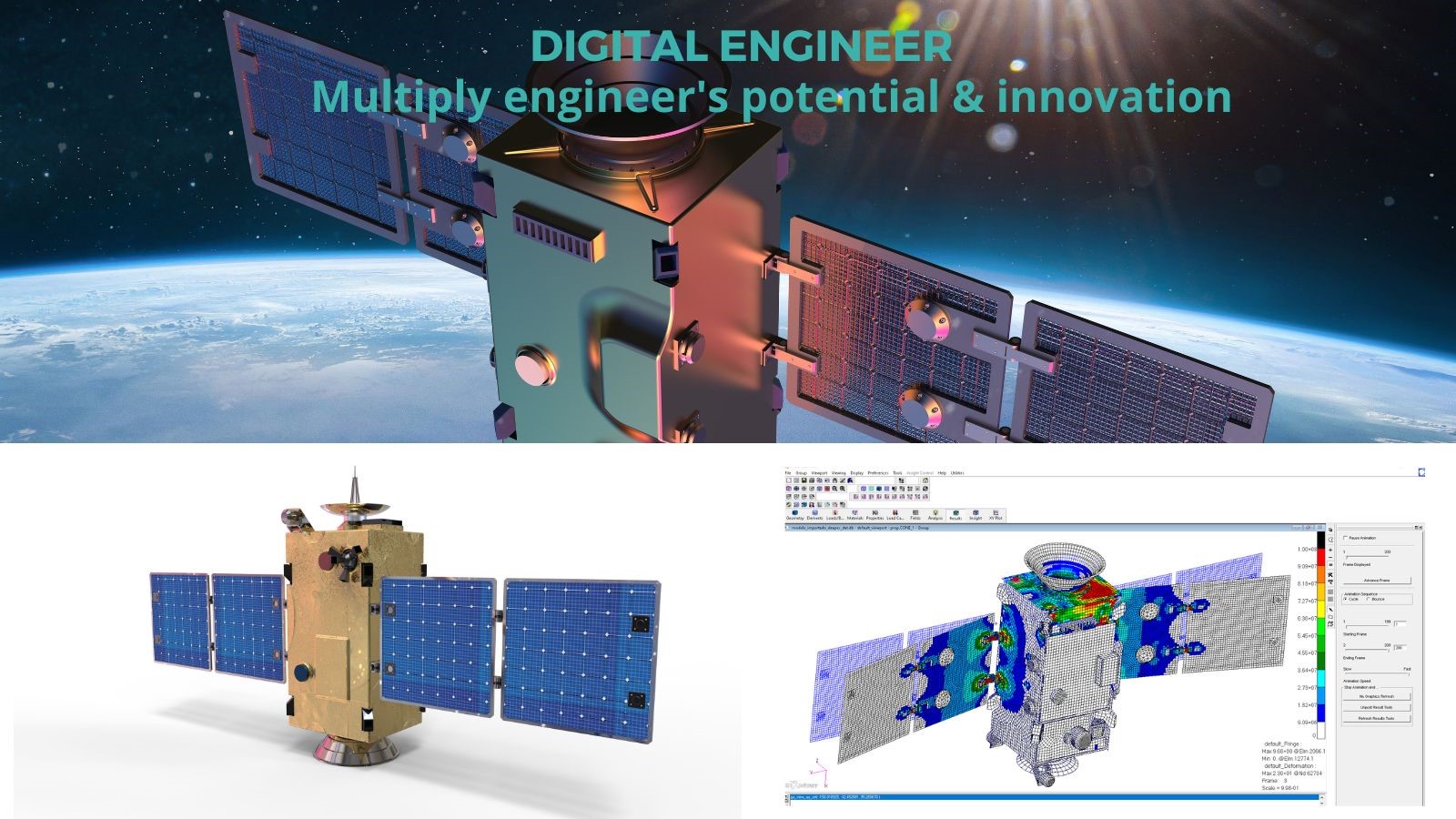
The Digital Engineer increases engineers’ potential
It offers practical, industry-based learning accessible anywhere. The COVID-19 pandemic hindered the possibility of obtaining expertise and skills through training, because many enterprises have closed or have reduced their activities. Unemployment reached nearly 10% in OECD countries by the end of 2020. Economic recovery is uncertain, the job market is more competitive than ever, and students need to achieve professional knowledge and abilities to face a very competitive job market. The availability of a powerful online platform, where content, exercises, live sessions and multiplayer games can be accessed anywhere and at any time, enhances the learning experience, with the additional benefits brough by hands-on practice.
Beyond COVID-19, the Digital Engineer increases engineers’ potential. Online courses integrated with a space thermal and mechanical engineering expert knowledge base − available in seconds via an AI-powered Digital Assistant − teach engineering learners how to perform standard tasks, such as geometry construction. Besides, the Digital Engineer has the potential to reduce the failure rate linked to extensive hands-on engineering experiences, such as small satellites missions.
Users and their needs
The Digital Engineer targets a market composed of the following stakeholders:
-
Engineering learners
-
Universities and research centres
-
Industry
Engineering learners include undergraduates attending bachelor’s degrees, postgraduates in master’s degrees and doctorate/PhDs, and professionals in the industry.
The pilot countries involved in the project were Belgium, Ireland, Spain, and the United Kingdom, where users from select universities have taken part in the testing phase of the product.
The following pains and needs were identified for different categories:
Engineering learners
-
Closure of enterprises, with subsequent lack of apprenticeships and training opportunities
-
Issues with engagement and motivation while studying from home
Instructors
-
Re-design coursework for online teaching
-
Challenges in deploying tech at scale
-
Challenges in finding a virtual substitution for the lab-based, hands-on experiences and teamwork that the discipline requires
-
Work overload
-
Issued with remaining engaged and motivated when teaching from home
Engineering schools, academy, and research centres
-
Significant small-satellite mission failure rates
Industry
-
Lack of skilled engineers supporting the industry
-
Inability to offer training opportunities due to safety and economic issues linked to the pandemic
Service/ system concept
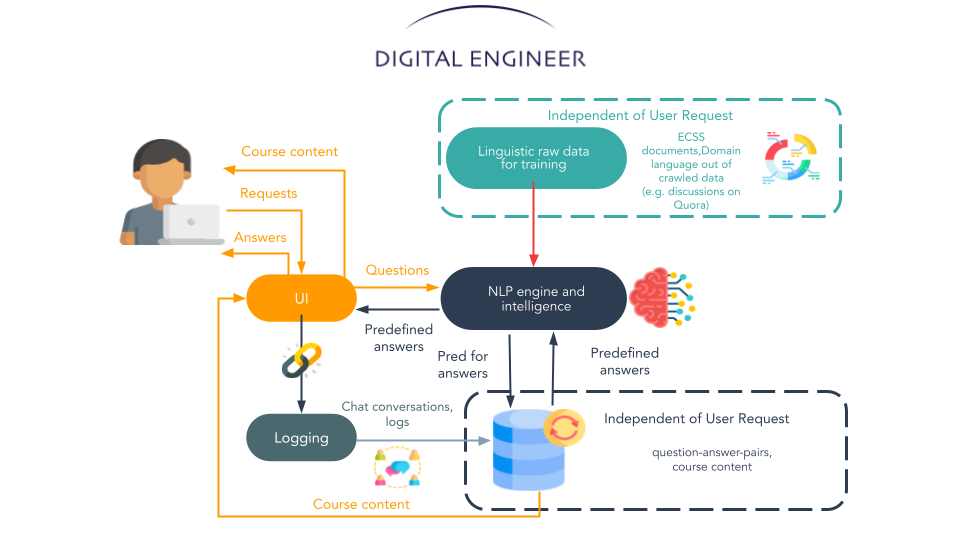
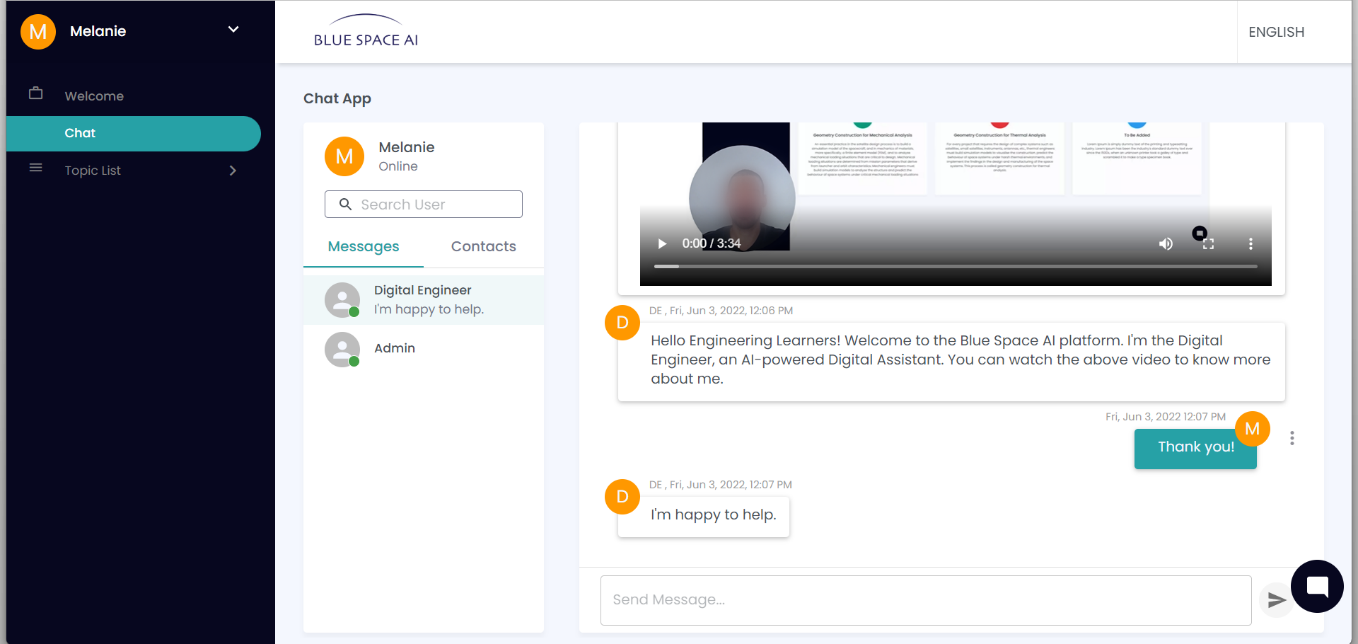
The Digital Engineer is an intelligent and interactive platform that provides the tools for engineering instructors to focus on teaching and industry knowhow to engineering learners to solve big problems on planet Earth, such as building a satellite from scratch to measure forest carbon capture and remove carbon from atmosphere.
Some of the building blocks of the platform are Artificial intelligence (AI), Natural language processing (NLP), Robotic process automation (RPA), and API integration with third party application such as TASverter, SINAS and the last one MSC APEX.
Engagement and memory retention are enhanced due to interactive, guided learning via personalised learning journeys.
Some of the key outputs offered by the Digital Engineer are:
-
Developing learner’s practical skills for building the thermal and mechanical model of space systems, such as satellites, small satellites, launchers, instruments, antennas from CAD models.
-
Offering in the first release, two interactives engineering courses for thermal and mechanical analysis.
-
Letting students and professionals apply the methods developed to set up a realistic demonstration case and critically assess its performance against current practice in industry.
Space Added Value
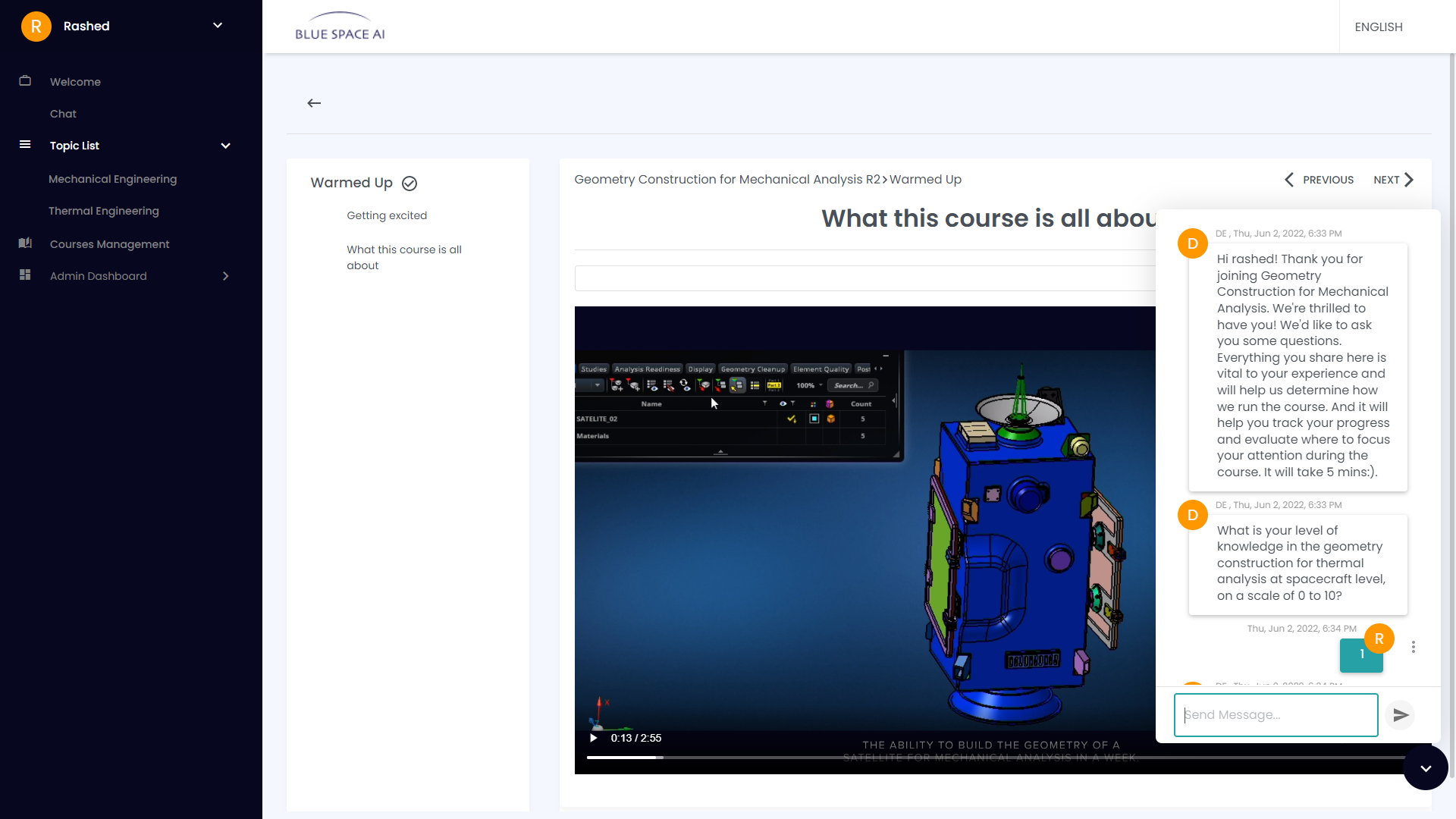
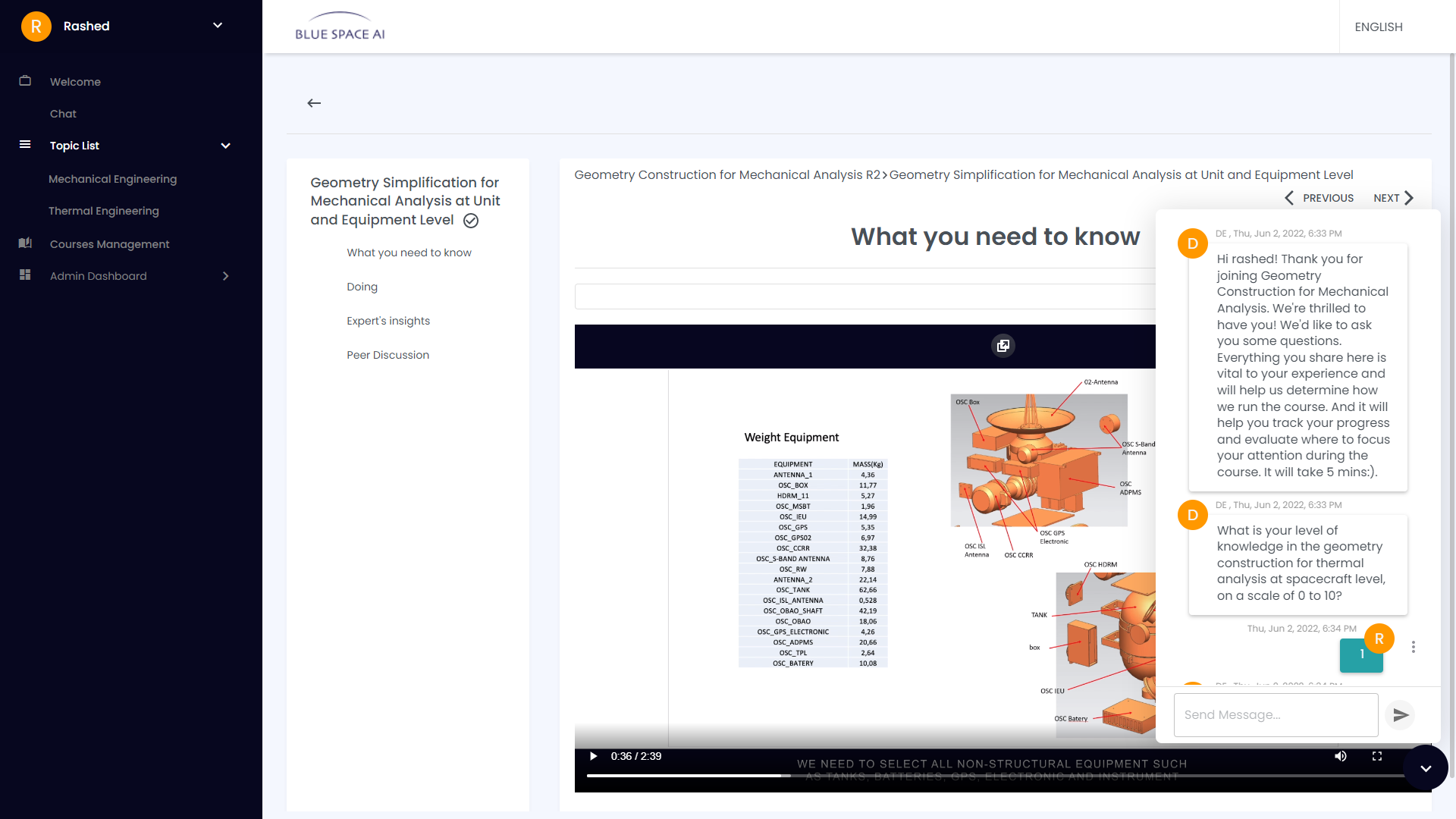
The Digital Engineer enables engineers and students to access knowledge and develop experience regardless of location, and equal opportunity to learn.
The Digital Engineer leverages LEO satellite communications to make learning accessible to those in remote or poorly connected locations via the Starlink satellite constellation. Starlink uses advanced satellites in a low orbit enabling low-latency, high-speed connections that are effectively indistinguishable from traditional terrestrial connections (ADSL, 4G, Wireless).
As a direct result, Digital Engineer can bridge the Digital Divide
High-speed connectivity provides opportunities for learning even when it is not possible to get to university. The National Space Centre Ireland, a partner in the Digital Engineer project, provides the Starlink connection via their Earthstation Gateway in Ireland. Starlink service is now commercially available in 20 European/EU countries: Germany, France, UK, Netherlands, Belgium, Austria, Ireland, Portugal, Denmark, Switzerland, Poland, Italy, Czech Republic, Sweden (south only), Lithuania, Croatia, Spain, Slovakia, Slovenia, Bulgaria.
Current Status
44 users from our pilot customers registered for the Pilot phase, which ran over eight weeks (February and March 2022). Sessions of both Geometry Construction for Mechanical Analysis and for Thermal Analysis were offered twice a week. Issues and comments from users were pivotal to improving the Digital Engineer. Discussions with MSC Software allowed the Digital Engineer project team to implement a connector between the platform and MSC APEX. The courses were challenging but help was given during the live sessions and expert advice provided in video interviews, both included in the courses. The Digital Engineer project team is currently further automating the platform. The presence of a knowledge base to answer questions asked by users via the digital assistant is a very useful tool to obtain clarification and assistance. The interaction between human learner and machine is also crucial and is constantly refined. Marketing campaigns have started to introduce the Digital Engineer to a broader audience.
